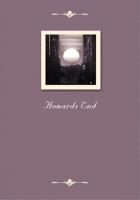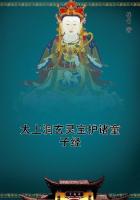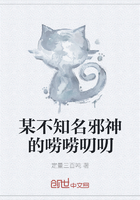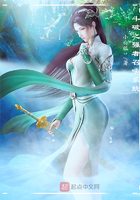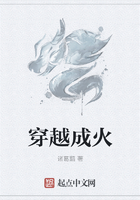With these words, George hurried on the two women still more quickly, and all four, without having been detected, reached the banks of the lake. 'As Douglas had said, a little boat was waiting; and, on seeing the fugitives approach, four rowers, couched along its bottom, rose, and one of them, springing to land, pulled the chain, so that the queen and Mary Seyton could get in. Douglas seated them at the prow, the child placed himself at the rudder, and George, with a kick, pushed off the boat, which began to glide over the lake.
"And now," said he, "we are really saved; for they might as well pursue a sea swallow on Solway Firth as try to reach us. Row, children, row; never mind if they hear us: the main thing is to get into the open."
"Who goes there?" cried a voice above, from the castle terrace.
"Row, row," said Douglas, placing himself in front of the queen.
"The boat! the boat!" cried the same voice; "bring to the boat!"
Then, seeing that it continued to recede, "Treason! treason!" cried the sentinel. "To arms!"
At the same moment a flash lit up the lake; the report of a firearm was heard, and a ball passed, whistling. The queen uttered a little cry, although she had run no danger, George, as we have said, having placed himself in front of her, quite protecting her with his body.
The alarm bell now rang, and all the castle lights were seen moving and glancing about, as if distracted, in the rooms.
"Courage, children!" said Douglas. "Row as if your lives depended on each stroke of the oar; for ere five minutes the skiff will be out after us."
"That won't be so easy for them as you think, George," said Little Douglas; "for I shut all the doors behind me, and some time will elapse before the keys that I have left there open them. As to these," added he, showing those he had so skilfully abstracted, "I resign them to the Kelpie, the genie of the lake, and I nominate him porter of Lochleven Castle."
The discharge of a small piece of artillery answered William's joke; but as the night was too dark for one to aim to such a distance as that already between the castle and the boat, the ball ricochetted at twenty paces from the fugitives, while the report died away in echo after echo. Then Douglas drew his pistol from his belt, and, warning the ladies to have no fear, he fired in the air, not to answer by idle bravado the castle cannonade, but to give notice to a troop of faithful friends, who were waiting for them on the other shore of the lake, that the queen had escaped. Immediately, in spite of the danger of being so near Kinross, cries of joy resounded on the bank, and William having turned the rudder, the boat made for land at the spot whence they had been heard. Douglas then gave his hand to the queen, who sprang lightly ashore, and who, falling on her knees, immediately began to give thanks to God for her happy deliverance.
On rising, the queen found herself surrounded by her most faithful servants--Hamilton, Herries, and Seyton, Mary's father. Light-headed with joy, the queen extended her hands to them, thanking them with broken words, which expressed her intoxication and her gratitude better than the choicest phrases could have done, when suddenly, turning round, she perceived George Douglas, alone and melancholy.
Then, going to him and taking him by the hand--
"My lords," said she, presenting George to them, and pointing to William, "behold my two deliverers: behold those to whom, as long as I live, I shall preserve gratitude of which nothing will ever acquit me."
"Madam," said Douglas, "each of us has only done what he ought, and he who has risked most is the happiest. But if your Majesty will believe me, you will not lose a moment in needless words."
"Douglas is right," said Lord Seyton. "To horse! to horse!"
Immediately, and while four couriers set out in four different directions to announce to the queen's friends her happy escape, they brought her a horse saddled for her, which she mounted with her usual skill; then the little troop, which, composed of about twenty persons, was escorting the future destiny of Scotland, keeping away from the village of Kinross, to which the castle firing had doubtless given the alarm, took at a gallop the road to Seyton's castle, where was already a garrison large enough to defend the queen from a sudden attack.
The queen journeyed all night, accompanied on one side by Douglas, on the other by Lord Seyton; then, at daybreak, they stopped at the gate of the castle of West Niddrie, belonging to Lord Seyton, as we have said, and situated in West Lothian. Douglas sprang from his horse to offer his hand to Mary Stuart; but Lord Seyton claimed his privilege as master of the house. The queen consoled Douglas with a glance, and entered the fortress.
"Madam," said Lord Seyton, leading her into a room prepared for her for nine months, "your Majesty must have need of repose, after the fatigue and the emotions you have gone through since yesterday morning; you may sleep here in peace, and disquiet yourself for nothing: any noise you may hear will be made by a reinforcement of friends which we are expecting. As to our enemies, your Majesty has nothing to fear from them so long as you inhabit the castle of a Seyton."
The queen again thanked all her deliverers, gave her hand to Douglas to kiss one last time, kissed Little William on the forehead, and named him her favourite page for the future; then, profiting by the advice given her, entered her room where Mary Seyton, to the exclusion of every other woman, claimed the privilege of performing about her the duties with which she had been charged during their eleven months' captivity in Lochleven Castle.

